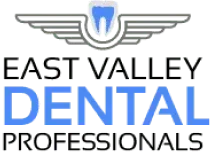Cavities are very uncomfortable and can affect anyone, including infants, as long as they have teeth. According to the National Institute of Dental and Craniofacial Research, about 92% of adults have had cavities filled, while another 30% of American adults have untreated cavities, says the CDC as of 2018. Besides the discomfort they cause you, tooth cavities can destroy your teeth and even cause you more health problems as you age.
These potential consequences make it crucial to know the signs of tooth cavities. Knowing the early signs of cavities helps you get the right solutions as quickly as possible, which is also a way to prevent further decay or other dental issues. But before we delve into these signs, let us establish what a cavity is.
What is Tooth Cavity?
Tooth cavities, also known as tooth decays or caries, are permanently damaged portions that occur on the hard surface of your teeth. They start as dental plaques (clear, sticky films that coat the teeth), which later develop into tiny openings or holes in your teeth. Many factors cause cavities, such as eating or drinking sugary items, snacking frequently, and not cleaning your teeth after food consumption.
Cavities and tooth decay are most common in children, teenagers, and older adults. However, they can affect just about anyone, including infants.
What are the Early Signs of Tooth Cavity
Here are the signs of cavities in children and adults:
Sensitivity to Hot and Cold
One of the early signs of cavities is a lingering sensitivity whenever you eat or drink hot or cold food or beverages. When the enamel on your tooth starts to wear away, it exposes the dentin, a layer of hard tissue lying below the enamel. The gradual loss of dentin increases your tooth sensitivity.
When there isn’t enough enamel covering the dentin, cold or hot food and drinks stimulate the nerves and cells inside your teeth, causing tooth sensitivity and discomfort.
Bad Breath and Weird Taste
Bad breath may not be an early sign of cavities, but they are strong indications that you have them. This occurs because bacteria in your mouth settle around the affected tooth and produce waste that gives off the foul breath and taste that you perceive.
A bad breath and a foul taste are embarrassing, especially when you’re in a public place or social gathering. For most patients, tooth decay has exceeded the early stages, so you need to act quickly to reverse the damage done.
Toothache
Another early sign of cavities to watch out for in children is a toothache. If they have problems biting down or chewing, you can have their teeth examined by a dentist for any signs of cavities.
Toothaches often occur due to inflammation around the affected tooth. The toothache could come from what you eat or as a sudden burst of acute pain.
Discoloration
Dark spots (brown or black) on any of your teeth often indicate tooth decay that has gotten worse. Sometimes, they first appear as white spots. As the tooth decay continues to worsen, the white stains become dark spots. This discoloration typically occurs on the surface of your teeth.
Bleeding and Swollen Gums
Some cavities settle near the gum line, affecting both the teeth and gums. If you notice signs of inflammation in your gums, especially if they bleed when you brush or floss, it is imperative that you seek a solution to the effects that cavities cause.
A Hole in Your Tooth
If the white spot on your tooth worsens, you will likely have a hole in your tooth. You may be able to see it when you look in the mirror or feel it with your tongue when you run it over the surface of your teeth. However, you may not be able to see or feel smaller holes that occur in-between your teeth, but the pain or sensitivity will be there.
You need to set an appointment with your dentist if you notice a hole in your child’s teeth or if you notice the same in your teeth. Holes or pits in your teeth are a clear sign that you have tooth decay and can lead down the road to root canals.
How to Prevent Tooth Decay
There are many simple ways you can stop cavities from developing and prevent tooth decay. You do not have to deal with food/drink sensitivities, toothaches, and other oral hygiene consequences on a long-term basis.
Some of these solutions involve daily habits you can implement on your own. However, others suggest the assistance of an experienced dentist that can offer professional treatment:
Daily Habits
- Brush with fluoride toothpaste after eating or drinking, at least twice daily
- Rinse your mouth after eating and floss daily
- Avoid frequent snacking and sipping.
- Eat tooth-healthy foods and beverages
Dental Solutions
- Visit your dentist for regular teeth cleanings. Go for general dentistry checks even if you feel okay.
- Consider fluoride treatments for your drinking water or for fitting over your teeth
- Consider dental sealants for school-age children
Local Dental care You Can Trust
While many people experience long-term dental problems as they age due to cavities, you do not have to. With these early signs and answers to preventing cavities, you can not only avoid painful tooth discomfort but also carry a smile you’re proud of.
Our professional dental team is ready to answer your questions about cavity signs you may be experiencing. We can help you discover whether you do have cavities and help you find the best solution forward. Call our dental office today at 480-838-3033 to schedule an appointment with us.

